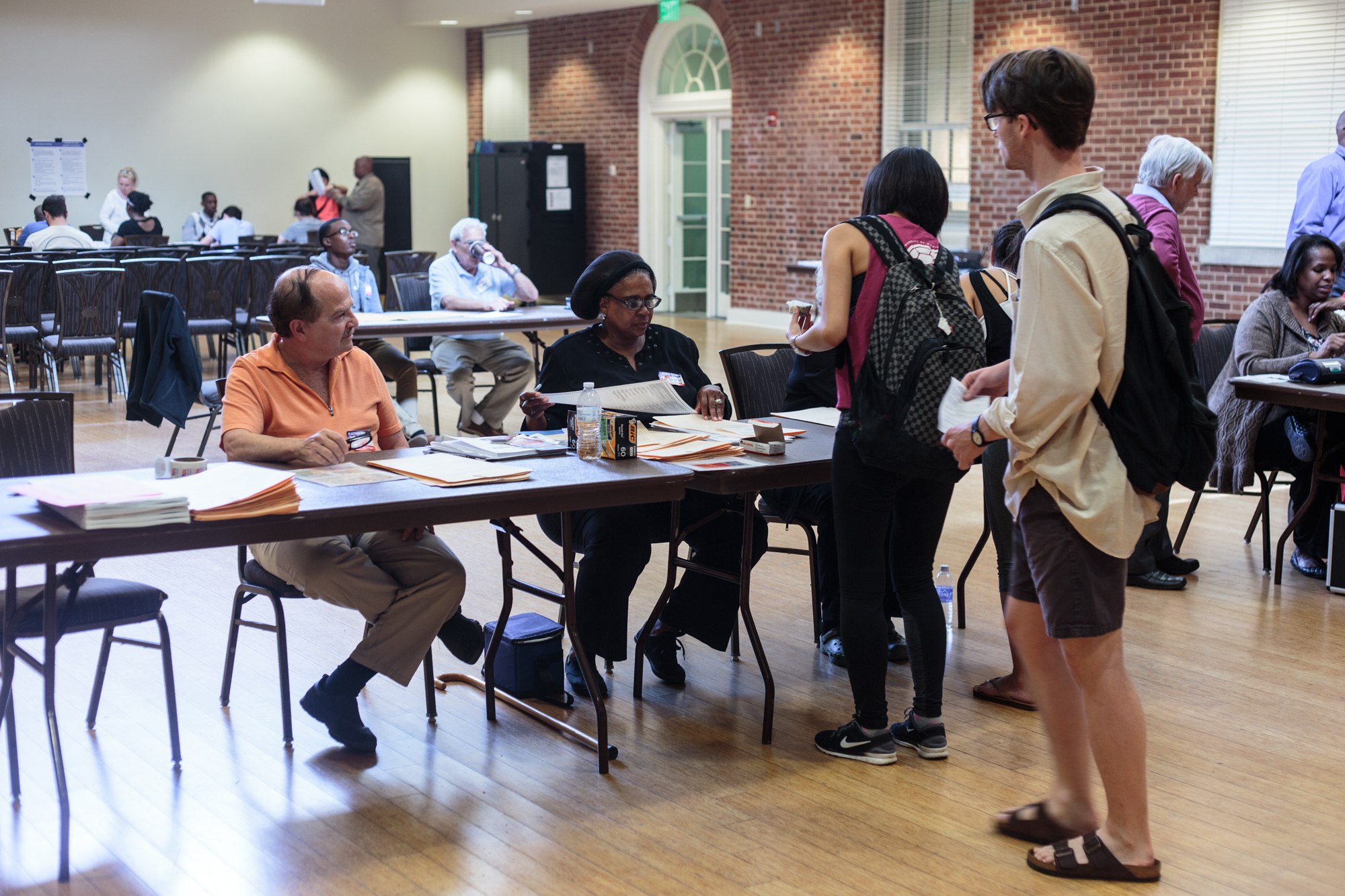The SGA has turned to technology to increase student voter registration.
The Student Government Association has been using TurboVote, an online system allowing college students to easily register to vote, to make the voting process for university students easier. For about $3,000 a year, SGA President Katherine Swanson said, the SGA can use TurboVote to encourage student registration, keep track of who’s registered and remind students when the day comes to step into the voting booth.
Seth Flaxman, the creator of TurboVote, was a graduate student at Harvard University when he realized he had missed the past few elections and needed a better way to stay on top of what was going on in the political world. So he did what every college student would: He looked online.
“He thought that there must be a better system online that could notify him of what was going on, but he couldn’t find one,” said Brandon Naylor, communications director for Democracy Works, a nonprofit dedicated to improving the experience and infrastructure of the voting process.
So in 2010, Flaxman and Kathryn Peters, the co-founders of Democracy Works, created TurboVote. Various colleges and universities, including the University of Maryland, are now using the online platform as a way to encourage students to “never miss an election.”
The goal of the TurboVote Challenge, which organizes businesses and nonprofits to encourage voter turnout, is to have 80 percent of eligible voters in the country turn out to vote by the 2020 election.
The TurboVote system was set up to be as easy as possible, and the process only takes up to three to five minutes, Naylor said.
“Because the TurboVote system is so streamlined and easy to use, it is much easier to target GOTV efforts and make sure that people know how they can vote come election day,” said Mihir Khetarpal, SGA director of governmental affairs and a junior government and politics major.
Without the TurboVote system, the SGA would have had to develop a complicated system to help both in- and out-of-state students register to vote or get access to absentee ballots, Swanson wrote in an email.
“Often, it seems that many students become overwhelmed by the amount of effort it can take to register or request an absentee ballot,” Swanson, a senior government and politics major, wrote. “Many don’t know how to request an absentee ballot or whether or not they can change their registration to be in College Park, etc.”
“One of the largest criticisms” of college-aged voters is that they’re apathetic or don’t care about elections, Naylor said. But U.S. Census data show that 60 percent of all non-voters in 2012 said the reason was because of issues with the process, he added.
Naylor hopes TurboVote will encourage young voters to have better voting habits in the future, he said.
“The more you get into the habit of voting, the better it sets you up for life long voting behaviors,” Naylor said. “If you can remind people of other elections including midterm and municipal, maybe we can have representation that’s more democratic.”
CORRECTION: Due to a reporting error, a previous version of this story incorrectly stated that Democracy Works is currently working with more than 300 colleges and universities. The organization has worked with more than 300 institutions since its founding. This story has been updated.



